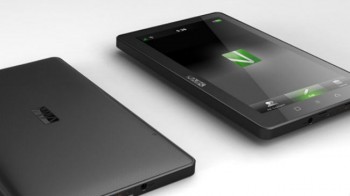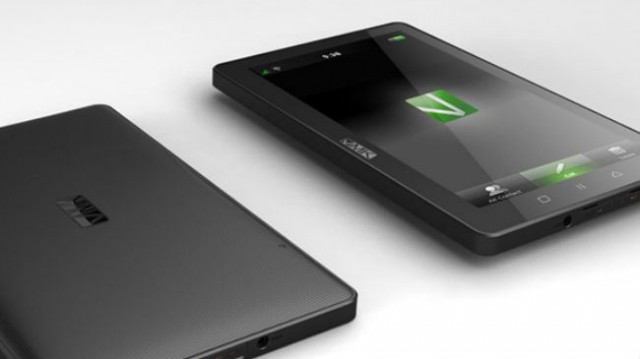
First African-made tablet and smartphone come to the continent
As exciting as announcements from the likes of HTC, Samsung, Motorola et. al are, one group of African engineers believe it’s time to change the technology culture in the Atlantic continent. The name of the group is VMK, and it has claimed the rights to name its smartphone and tablet as the first African-grown devices made specifically for the African people.
The devices, the Way-C tablet and the Elikia smartphone, are supposed to exude African influence through their names. “Way-C” is said to stand for “the light of the stars,” while “Elikia” is said to mean “hope” in Lingala. It was important for VMK to brand the devices in such a way as it shows the African people that it’s possible for technology to grow in an otherwise technologically-stagnant atmosphere.
VMK, headed by 27-year-old Verone Mankou, can enjoy being the first true designer of smartphones and tablets in the country despite many African-based companies branding and selling devices there. That’s because these other companies haven’t really made anything but a name — the devices themselves are bought from third-party ODMs based in other parts of the world, and stamped with whatever name these other companies ask them to stamp on it. It’s the same reason why a tablet from Maylong might look exactly like a tablet from Unknown Company #3,421.
While VMK’s first offerings don’t offer cream-of-the-crop performance and style, the company says the number one goal was to provide affordability more than anything. An attractive price tag is especially important in a continent largely ravaged by poverty, and while even the big-name guys offer devices in the entry level price range VMK hopes the allure of being the hometown hero will help its cause.
VMK is too small to handle its own manufacturing, of course, so there is some degree of outsourcing that had to be done. The manufacturing is done in Asia, and if VMK had the capital it would undoubtedly bring those jobs over to Africa. We should see that happen with proper growth, but it’ll take strong backing from the natives of Lingala, and Africa as a whole, to help reach that noble goal.

